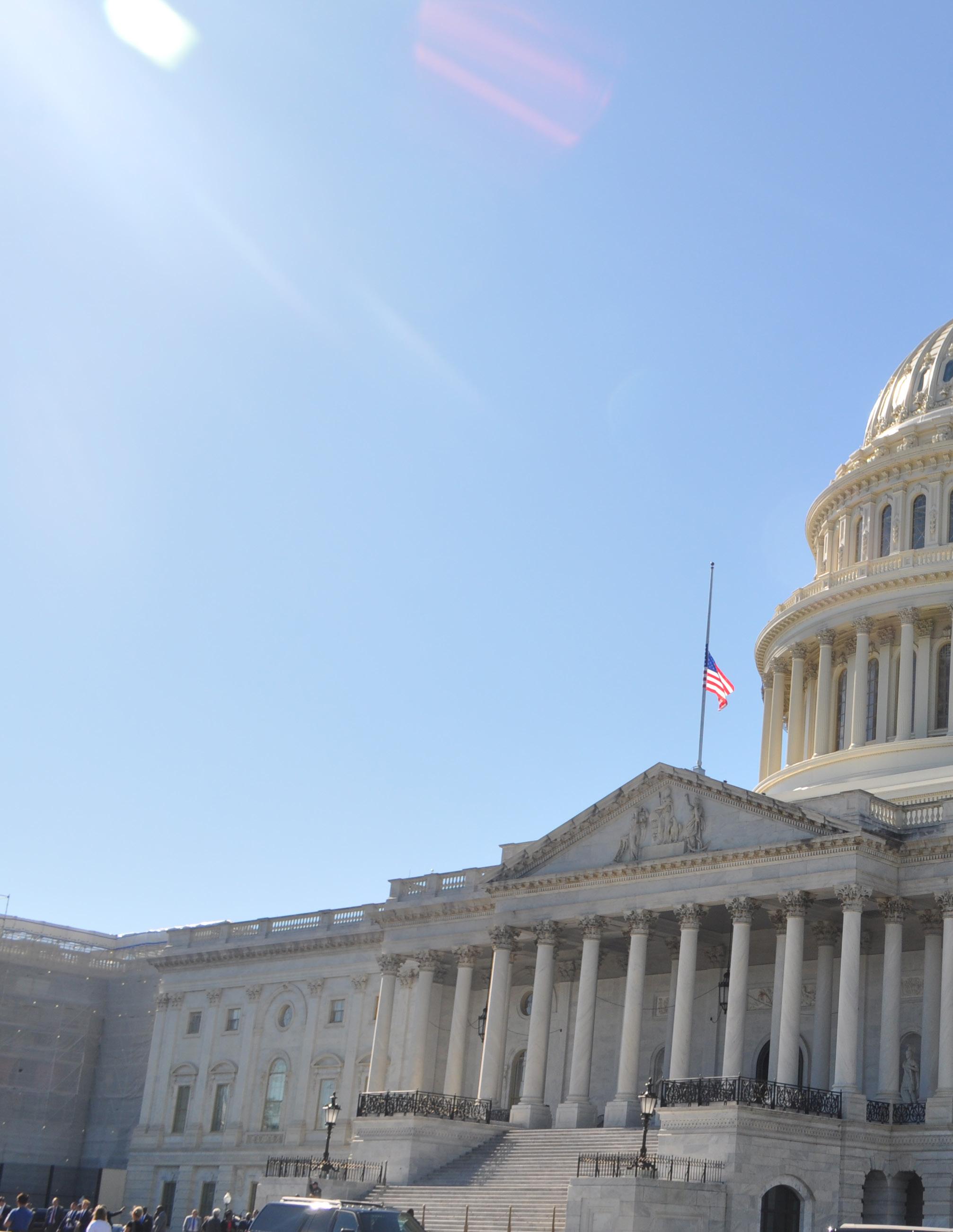
7 minute read
DECRIMINALIZING SEX WORK IN DC
by HCAmerican
Abby Henry
Trigger Warning: This article will contain content regarding sexual violence, police brutality, and human trafficking.
Advertisement
Sex work is a profession burdened with copious amounts of misinformation and stigma surrounding it. When most people think of sex work, they think of street-based sex work; which is one reality of how sex work permeates in our society, but it’s just one reality.
Sex work is an umbrella term for a variety of jobs in the sex industry. Some jobs under this umbrella are stripping, exotic dancing, camming, phone sex, sugaring, acting in pornography, escorting, brothel work, or street-based sex work. What do all of these jobs under the sex work umbrella have in common? Folks are exchanging sexual services for money.
Not all sex work is illegal in the United States; in fact, most jobs in the sex work umbrella are legal. However, selling sex, which is often done in street-based work, brothels, or escorting, is illegal in most of the United States. Even though these forms of sex work are illegal, it doesn’t decrease their demand or their prominence throughout society, but instead increases their danger.
“The sex trade and the violence that’s experienced there is a result of it having to be underground because of this inherent criminalization,” explained Eteng, who is a community organizer with Black Youth Project 100 and a board member of Collective Action for Safe Spaces, both organizations are members of the Sex Workers Advocacy Coalition that is one of the organizations leading the decriminalization movement in DC.
Criminalizing sex work only makes sex work more dangerous by stigmatizing it and forcing it into the shadows, which is why sex workers and allies are leading a movement to decriminalize sex work in DC.
#DECRIMNOWDC
In June of 2019, four members of the DC City Council Councilmember Grosso, Bonds, White, Nadeau, and Allen introduced a piece of legislation, the 2019 Community Health and Safety Amendment, which would decriminalize the buying and selling of sex between consenting adults. Councilmember Grosso worked closely with DECRIMNOW in the drafting and the advocacy of the bill. DECRIMNOW is an organization that serves as a coalition of sex workers and allies advocating for the decriminalization of sex work in DC.
On October 17th, there was a public hearing for the bill in the DC City Council. The purpose of the hearing was to allow the councilmembers to hear public opinion on the issue; thus, any member of the public was encouraged to sign up ahead of time to testify for or against the bill. Due to the volume of testimonies, the hearing ended up lasting fourteen hours. There were testimonies representing a variety of opinions on the bill.
The testimonies made one thing clear: sex workers want to limit their interactions with the police because of the violence they experience at their hands. According to the DC Trans Coalition, in DC, “twenty percent of sex workers who had been approached by police were asked for sex from the officer.” Some cases have been cited where police officers in DC arresting sex workers for selling sex after having intercourse with them. Eteng explained that “If we are able to significantly limit the interactions between police and sex workers, that’ll lead to better health outcomes and that’ll lead to them being able to do their work in more safe environments.”

Isabella Bobrowsky
When it comes to the opposition of the bill, Eteng has one response, “...sex workers, themselves, have said multiple times that there is no alternative to full decriminalization.” Sex workers live the experience of working in the sex industry every day, and because of that they have the best perspective on what will benefit them most; thus, it makes the most sense to respect the perspective and the wishes of sex workers, in this case, that being decriminalizing sex work.
Unfortunately, despite the overwhelming show of support for the bill at the hearing and the tireless organizing of sex workers and allies, the bill will not be brought to a vote before the DC City Council anytime soon. Councilmember Allen explained to the DCist that there isn’t enough support among his fellow Councilmembers to bring the bill to a vote. He believes that voting on the bill now would contribute to its failure.
Even though the bill seems to be thwarted in the DC City Council for the foreseeable future, the movement to decriminalize sex work in DC is not over. Sex workers are still actively organizing and are working hard to change the destigmatize and decriminalize sex work in DC.
What you didn’t know about sex work
Myth: No one chooses to be a sex worker.
Fact: People choose sex work as a profession for a variety of reasons. Not all reasons are survival biased which is a common misconception. Some people may choose sex work because they are kept out of the traditional workforce whether that be because of their citizenship status, their ability status, or other societal inequalities. Or some people may choose sex work as a profession simply because they want to.
“ … it’s what I always wanted to do, & I finally drummed up enough courage to do it one day. I didn’t realize it would end up making more than my office job did, which was a very welcome perk. But ultimately it’s the *perfect* job for me, personality wise. There’s nothing better, ”@ TonjaWallace on twitter explained in a response to a twitter thread that asked sex workers to respond to the prompt “I started doing sex work because…”
Myth: Criminalizing buying sex and decriminalizing selling sex is a safer alternative.
Fact: Sex workers in DC do not see this method as a viable alternative. Eteng explained that criminalizing just the act of buying sex can even make sex work more dangerous because it creates a different power dynamic between the buyer and the sex worker. “... if we live in a world where it becomes riskier to buy sex, then you have folks who are going to be even more coercive or more demanding or be less likely to respect the cost of the service that the sex worker is offering because what they’re doing has to happen underground.”
Additionally, sex workers in DC have explained that there is no alternative to full decriminalization. Eteng urges that this should be enough of an argument against this partial decriminalization model because sex workers’ perspectives should be centered and respected on policies that impact them most.

Vidisha Banerjee
Myth: Decriminalizing sex work leads to increased sex trafficking or decreases the penalties for sex trafficking.
Fact: Sex trafficking is when someone is forced or coerced into trading sexual services for money or goods. Physical violence, fraud, and debt bondage are often used as methods of coercion or force by traffickers. Sex workers are choosing to exchange sexual services for money, those who are trafficked do not have a choice in the matter. Sometimes the lines between sex workers and those who are sex trafficked can be blurry, but the best remedy in such a situation is to listen to the person who is involved and affected and to respect how they identify themselves.
According to the Washington Blade, between 2013 and 2017 out of 2,582 sex work-related arrests, only seven were related to sex trafficking. Sex trafficking regulation has not been benefited by criminalization of consensual sex work and there is no evidence that dynamic will change if sex work becomes decriminalized. It is important to recognize that if sex work is destigmatized and decriminalized, a victim of sex trafficking may be more likely to seek the resources they need because they are less likely to fear punishment or arrest for being involved in sex work.
How to be an ally
Eteng encourages people to follow @DecrimNowDc, @BYP_100, and @SafeSpacesDc on twitter to stay up to date on actions you can take to support the decriminalization movement. Those accounts also often retweet sex workers seeking financial support, which Eteng explained is one of the best ways you can support a sex worker.
The most important thing one needs to do to be an ally to sex workers is to raise awareness about the misinformation and myths surrounding sex work. Eteng discussed the importance of educating yourself about the issues affecting sex workers, such as divestment from the police, and educating the people in your life about these issues as well.
Every person can make a difference in the movement to decriminalize and destigmatize sex work. The most important thing to remember in being an ally is to listen to sex workers.

Isabella Bobrowsky










